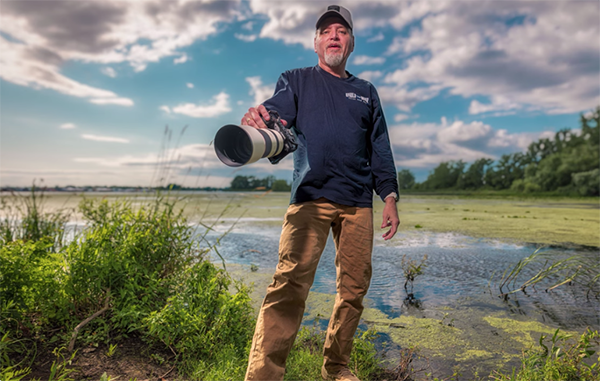Perspective Power: Camera Angles & Different Focal Lengths (VIDEO)
One sure way to give your imagery greater impact is to harness the power of shooting photos with a unique perspective. This isn’t difficult to do, it just requires looking at the world differently, and then capturing what you see.
This five minute tutorial from landscape pro Mike Rogala provides a heavy dose of inspiration to get you started. He explores how different camera angles and lens choices can transform the ordinary into the extraordinary. As he says, “perspective in photography is how we capture the spatial relationship between objects in a scene.”
The bottom line is this: By changing the camera position or the focal length of your lens you can easily alter these relationships to create unique and compelling images that rise above the norm. Rogala illustrates what happens when you shoot from a high, eye-level, or low camera angle. As you’ll see, the difference in results is substantial.

You’ll also see the impact that occurs when shooting with wide-angle glass, and then experimenting with the various focal lengths offered by a zoom lens. High-angle shots, looking down on a subject often convey vulnerability and can make a subject stand out by simplifying a distracting background.
The flip side of the coin involves shooting from a low angle to convey a sense of power or grandeur by emphasizing height and depth. Or as Rogala says, “it’s a great way to capture towering architecture, accentuate a dramatic sky, or make other subjects appear larger than life.” So see how low you can go.
Unfortunately, “most photographers default to eye-level” which is why so many images of iconic subjects look pretty much the same, and that’s why you should avoid this perspective if unique images are your goal. Thus, exploring high and low angles is a great way to create new dimensions in the photographs that you shoot.

As mentioned above, focal length also factors into the equation. Wide angle lenses are great for capturing expansive vistas or tight interiors, and they’re often indispensable if that’s the task at hand—especially if you want to exaggerate depth, lead viewers into the scene, and give your images an immersive feel. Rogala suggests combining a low camera angle with an ultra-wide lens to create awe-inspiring sunset images.
Long focal lengths are used to get in tight on distant subjects, like when photographing wildlife from afar. And Rogala explains a few techniques for combining unique camera angles with telephoto optics. Ultra-long lenses can also be used compress perspective and create an almost surreal look.
The foregoing is just a taste of what you’ll learn by watching this video. So follow Rogala’s advice the next time you’re out in the field and do some experimentation to take your imagery to new heights (and lows). Then check out his instructional YouTube channel where there’s much more to learn.





